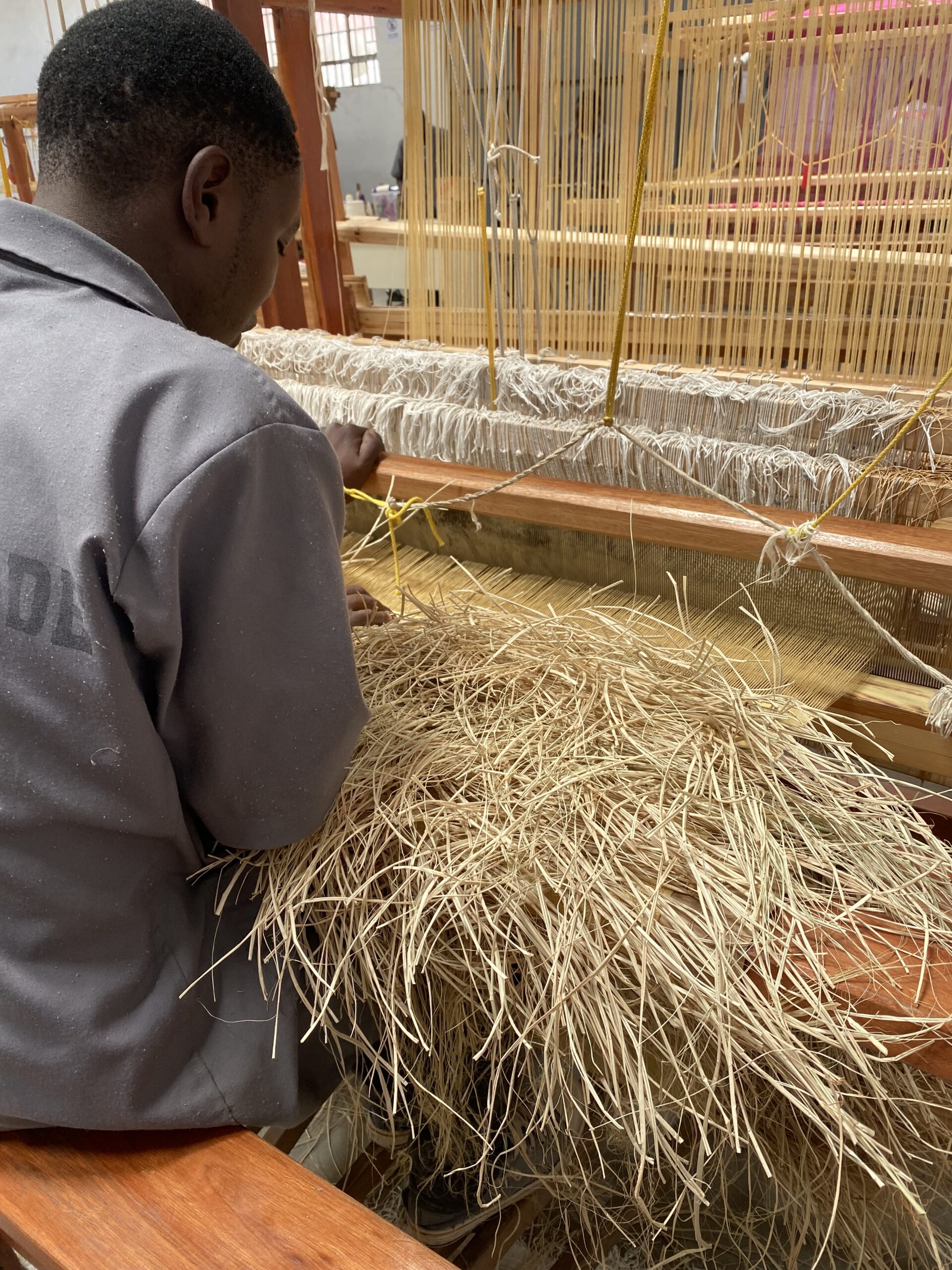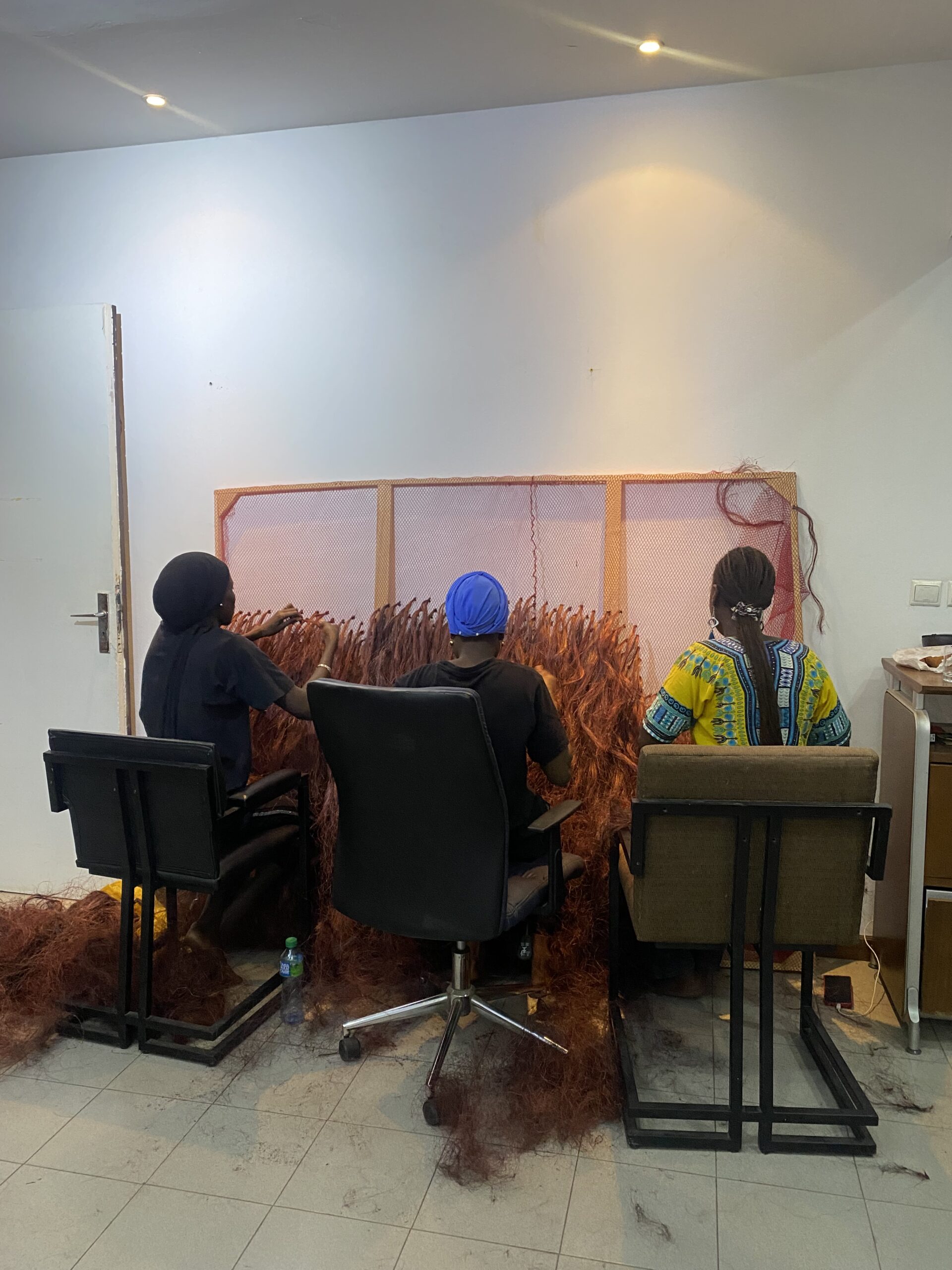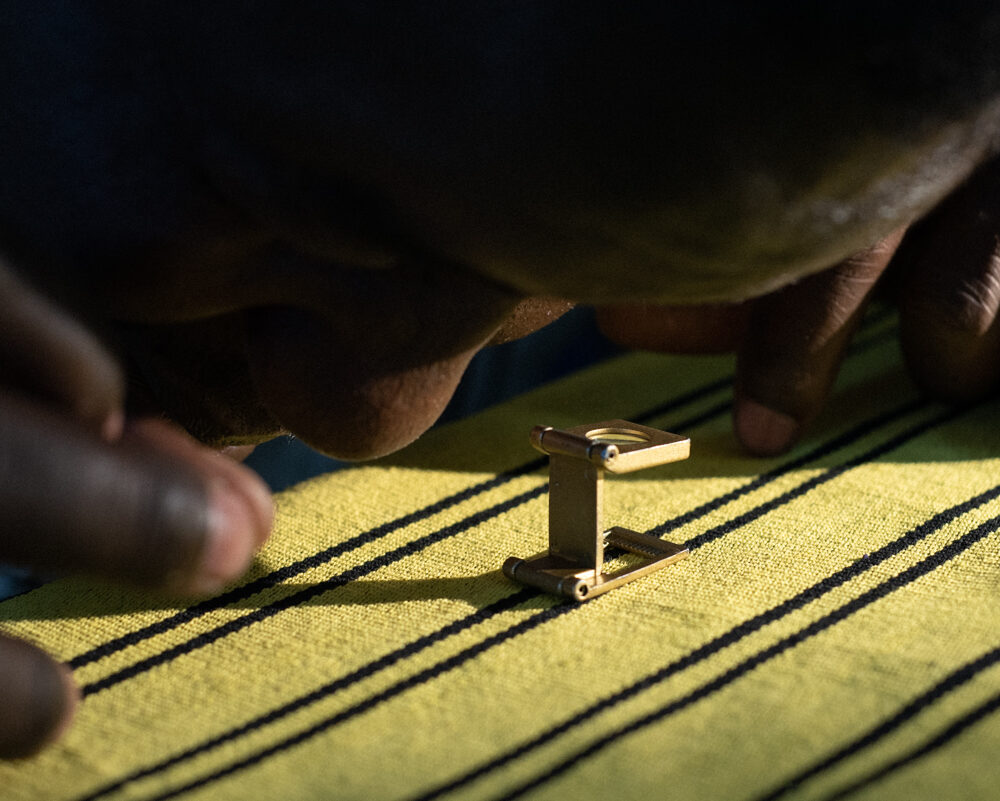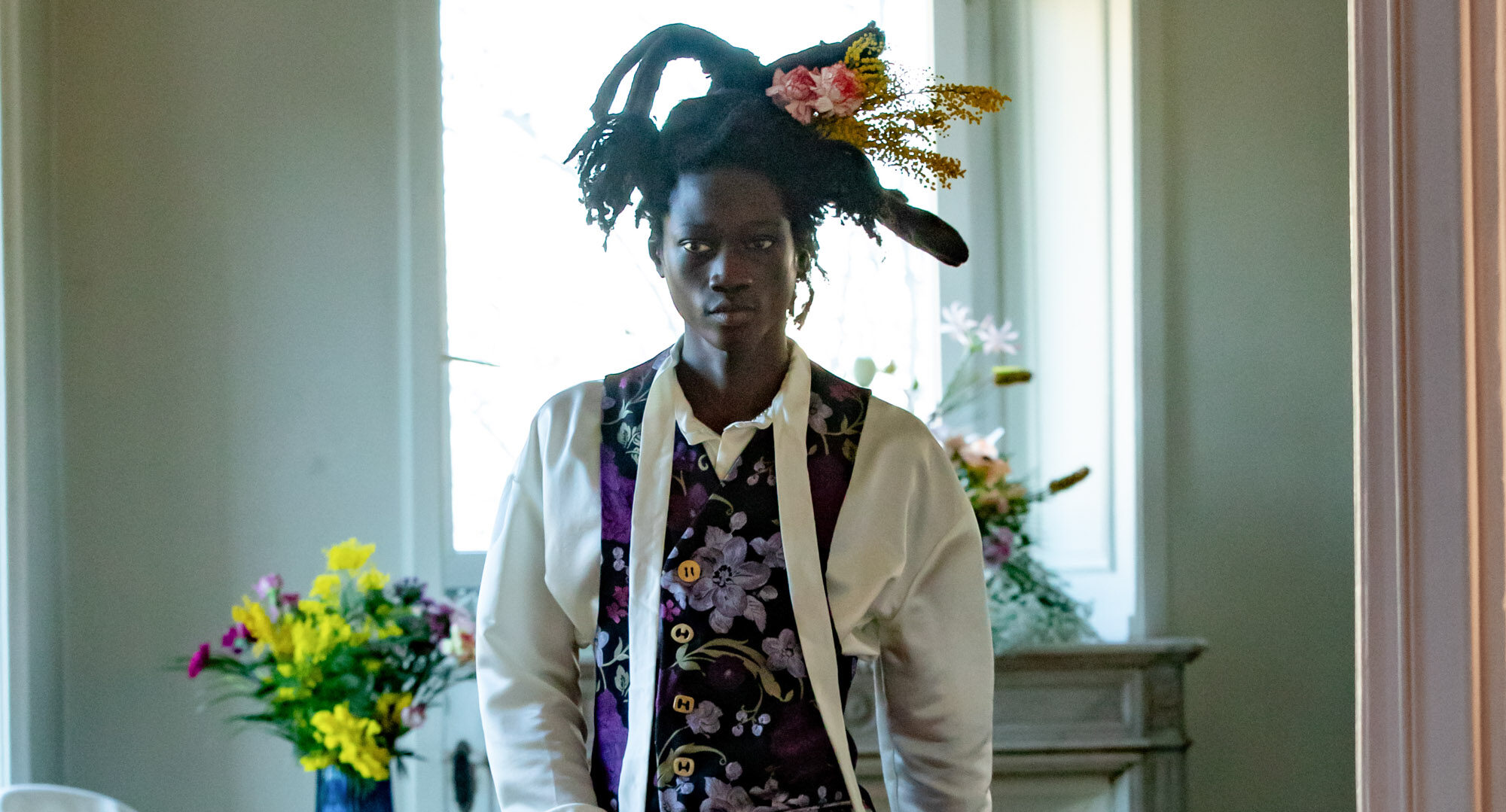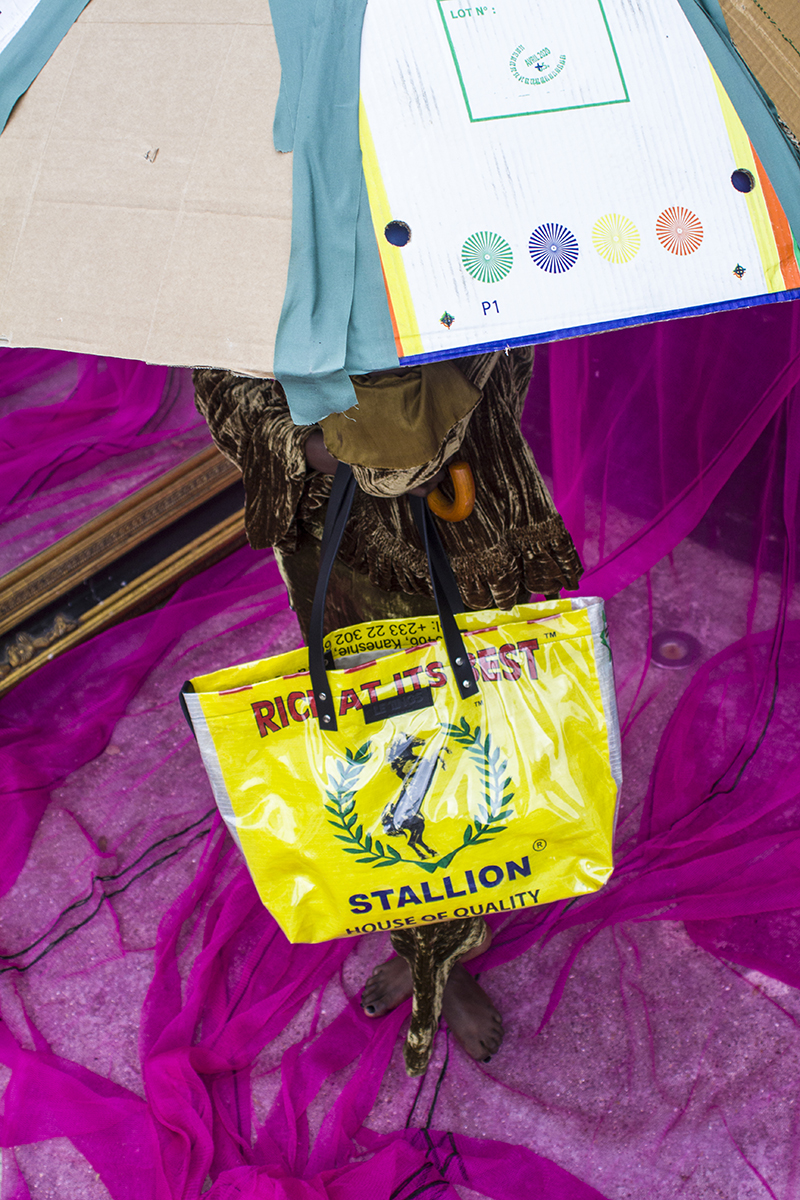The fibre artist who unites the continent with her contemporary approach to sacred traditions
In 2023, Bubu Ogisi marked 10 years of her brand I.AM.ISIGO. In that time, the Paris-trained, Lagos-based designer has carved out a distinctive path as a slow fashion advocate and fibre artist who traverses Africa in search of crafting techniques and untold mythologies to weave into her meditative storytelling. The results are wearable works of art that act as vessels for new pan-African archives. “It’s the work of the hands that connects us all,” Ogisi says of her nomadic approach that has seen her nurture relationships with artisans in Nigeria, Ghana, Kenya, Uganda, Benin, Côte d’Ivoire and beyond. “The slow processes of making in places where everyone still believes that they can bring objects to life from nothing, is why it’s important to go through borders to create a collective magic. Everything we do is time intensive and the act of ritual making goes into each piece.”
While evolving age-old handiwork such as bark cloth, brass, raffia and sisal, Ogisi is also concerned with reconsidering contemporary materials such as plastic and colonial cloth including cotton. By bringing these worlds together, she reimagines the belief systems and histories that stem from the materials. For example, her AW23 collaboration with Victoria’s Secret was an opportunity to create a series of one-off looks exploring Nigerian mythological systems. “I used different materials to represent deities or architypes, in line with how Victoria’s Secret exalts the feminine divine,” she explains. Julia Fox wore a dress made from glass tear drops to transform her into Osun, goddess of water, abundance and fertility. And Naomi Campbell modelled a dress made from gold-plated brass plates to evoke Yemoja, the mother of all spirits.
“Everything we do is time intensive and the act of ritual making goes into each piece”
Heading over to East Africa for her next inspiration, I.AM.ISIGO’s SS24 collection ‘Shadows’ hails Queen Nyabingi – a formidable ancestor from the Nande tribe. The ruler spoke through priestesses known as Bagirwa who donned bark cloth veils to enter paranormal states. “Bark cloth is believed to act as a cloak of invisibility or protection, which stems from how it’s made. We worked with artist Fred Mutebi in Uganda to develop ours, which involves sourcing the bark from the mutumba tree, scraping it, soaking it in clay and then in water until it’s soft enough to use,” she explains. “This season we used it in panels and patchwork so we wouldn’t have waste, and manipulated it into corseted shapes to show that you can wear it close to the body.” These looks mingle with pieces crafted from PVC, unbleached cotton and crocheted wool and are paired with glass-blown mini bags and amulet-like bronze jewellery. “The earthy colour palette signifies femininity, healing and protection against malevolent spirits. Brown and black represents connection of the soul to one’s ancestors, age, maturity and ability.”
With other recent achievements including showcasing at Lagos Fashion Week, collaborating with fellow Nigerian brand This Is Us, creating an installation for the Sharjah Architecture Triennial 2023 and being profiled in both Vogue and the New York Times, Ogisi continues to lead the way in the ethical space. “We’ve been sustainable since time, so it’s good that everyone else is now understanding that what we’re putting on our bodies should be valued and kept as art forms that can be passed down from generation to generation. Through these creations, we aim to infuse the spirit of transformation, and of unity, into every fibre and stitch.”
